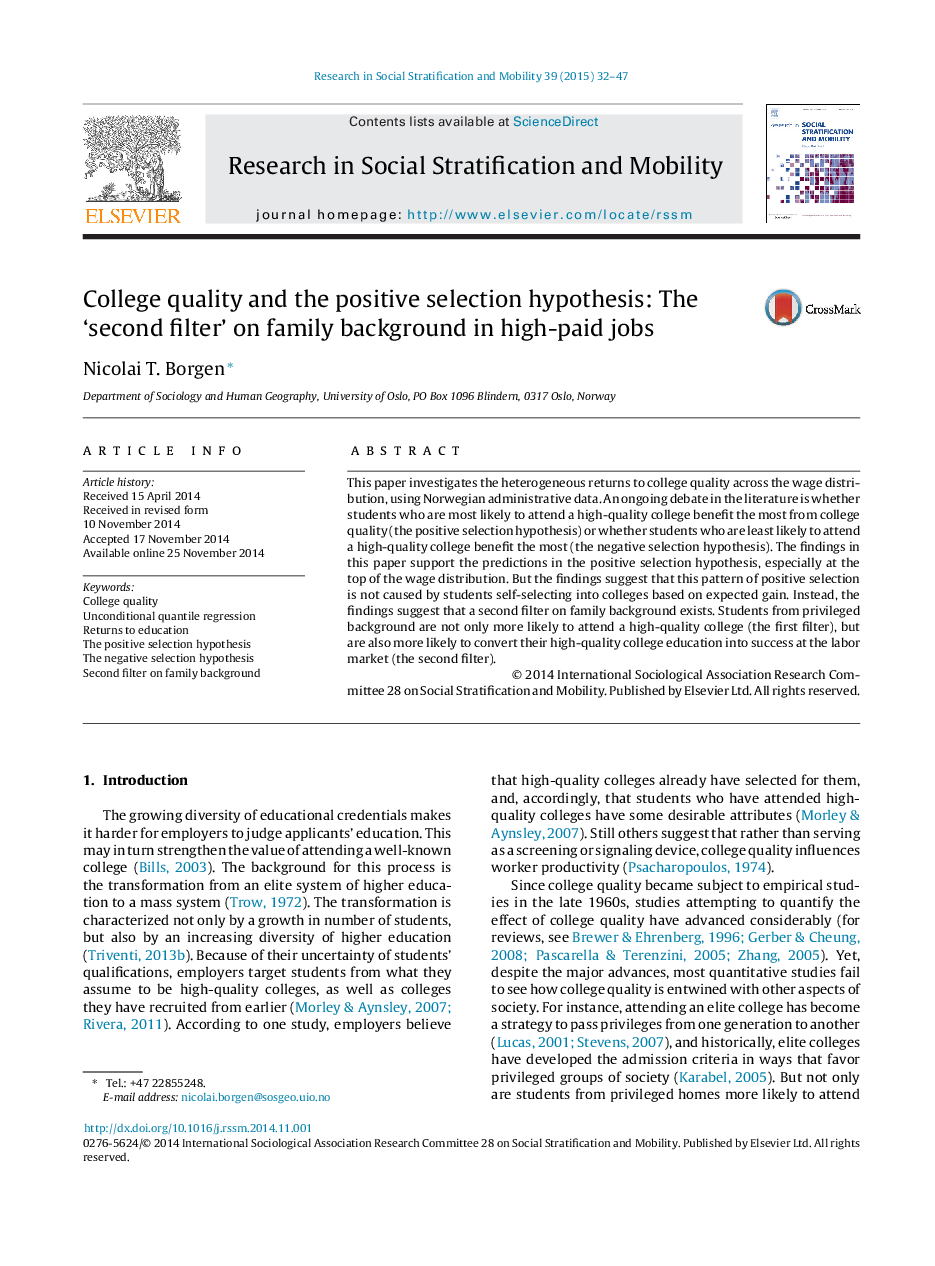| Article ID | Journal | Published Year | Pages | File Type |
|---|---|---|---|---|
| 999555 | Research in Social Stratification and Mobility | 2015 | 16 Pages |
•This paper investigates heterogeneous returns to college quality across the wage distribution.•Students from privileged backgrounds benefit the most from college quality.•They benefit the most especially at the top of the wage distribution.
This paper investigates the heterogeneous returns to college quality across the wage distribution, using Norwegian administrative data. An ongoing debate in the literature is whether students who are most likely to attend a high-quality college benefit the most from college quality (the positive selection hypothesis) or whether students who are least likely to attend a high-quality college benefit the most (the negative selection hypothesis). The findings in this paper support the predictions in the positive selection hypothesis, especially at the top of the wage distribution. But the findings suggest that this pattern of positive selection is not caused by students self-selecting into colleges based on expected gain. Instead, the findings suggest that a second filter on family background exists. Students from privileged background are not only more likely to attend a high-quality college (the first filter), but are also more likely to convert their high-quality college education into success at the labor market (the second filter).
